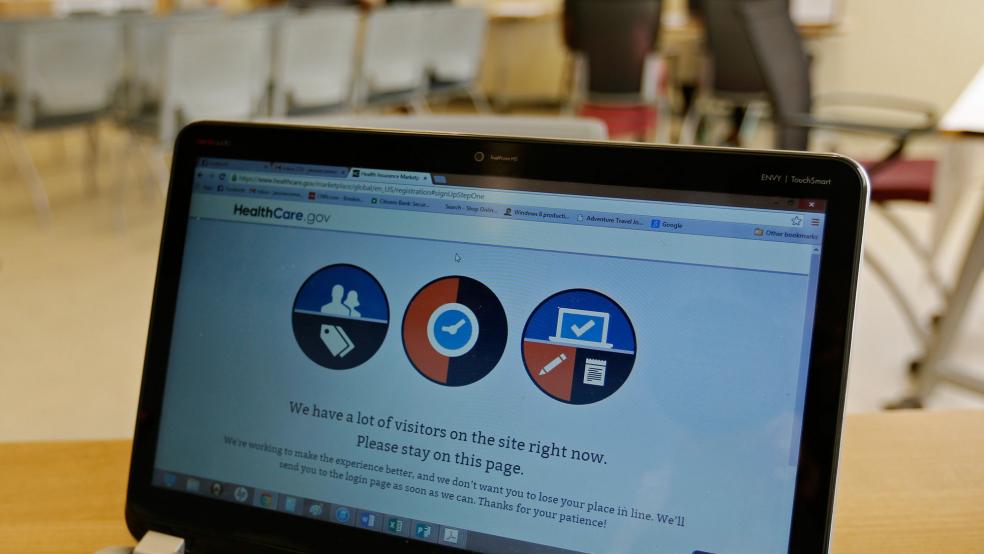The Obama administration’s $30 billion effort to encourage hospitals to digitize their health records and modernize the health care system seems to be failing--with half the participating health providers threatening to bail out of the program.
Under the Health Information Technology for Economic and Clinical Health (HITECH) Act, the government offers financial incentives to health providers that have digitized their health records and can present a “meaningful use” of how they are being shared.
Related: Keeping Your Health Records Safe from Hackers
HITECH mandates that by 2015, all hospitals must have digitized files. Those that do not will be penalized by receiving lower Medicare or Medicaid reimbursements. But the expensive costs to hospitals along with increasingly tough standards imposed under the law are forcing providers to opt out.
In a document obtained by The Washington Examiner, Wells Fargo security analysts estimate, “Almost half of providers will drop out during the current stage of the program.” The analysts questioned whether the program was “effectively dead” because of the tougher standards and the dwindling participation.
A similar report by the Government Accountability Office released earlier this year found that a substantial percentage of health providers who participated in 2011 had ditched the program because of the tougher standards.
Stage 1 of the law’s “meaningful use” standards requires hospitals to have 30 percent of patient records entered by computerized order entry. Stages 2 and 3, however have stricter standards that may lead more providers to drop out of the program, the GAO said.
Related: Why Your Health Records Are Stuck in the 20th Century
The whole idea of the program was to quickly modernize the system and streamline health records. So far, doctors and hospitals have received more than $23.7 billion to adopt electronic health records. Proponents say digitized records will eventually lead to better coordinated care, reductions in duplicative procedures as well as more accessible health data that can be shared between hospitals. Back in 2005, the RAND Corporation estimated that digitizing medical records could save the health care industry $81 billion annually.
Now, nine years later, the same researchers at RAND say they have found no evidence to suggest that digitizing records has resulted in any savings.
In fact, some research suggests that digitizing records could lead to even higher health care costs for patients, since doctors can order tests with greater ease, leading to a higher volume of tests, according to a study in Health Affairs.
It doesn’t seem to be improving the quality of care or making doctors’ work easier. And right now, most hospitals don’t have records that can talk to each other.
A survey published in the online version of JAMA Internal Medicine found that doctors said they “waste” 48 minutes per day filling out electronic health records.
“It simply takes longer [to enter patient information into a computer]," Dr. Clement McDonald, author of the study and a proponent of EHRs. "There is already so much to do and you have to look at patient safety…. Deep consequences can come out of one typo.”
Another major struggle providers are facing with the digitized records is that most systems still can’t “talk to each other,” making it nearly impossible to share information between providers.
Doctors and hospitals aren’t against the modernization effort. They just have different ideas about how to move forward into the digital age. In October, the American Medical Association sent a letter to the Centers for Medicare and Medicaid Services with recommendations about how to improve the program.
"Physicians will always embrace technology that can help them provide better care for their patients and foster innovation, but improvements must be made to the Meaningful Use program in order for those goals to be achieved," American Medical Association President Robert M. Wah, MD said in the letter. "We can no longer just delay the program from taking full effect. We must make the necessary changes to ensure that the Meaningful Use program requirements are in fact meaningful and deliver - not hinder - the intended improvements in patient care and practice efficiencies."
Read the letter here.
CMS officials said they would take AMA’s recommendations into consideration.
Top Reads from The Fiscal Times:





